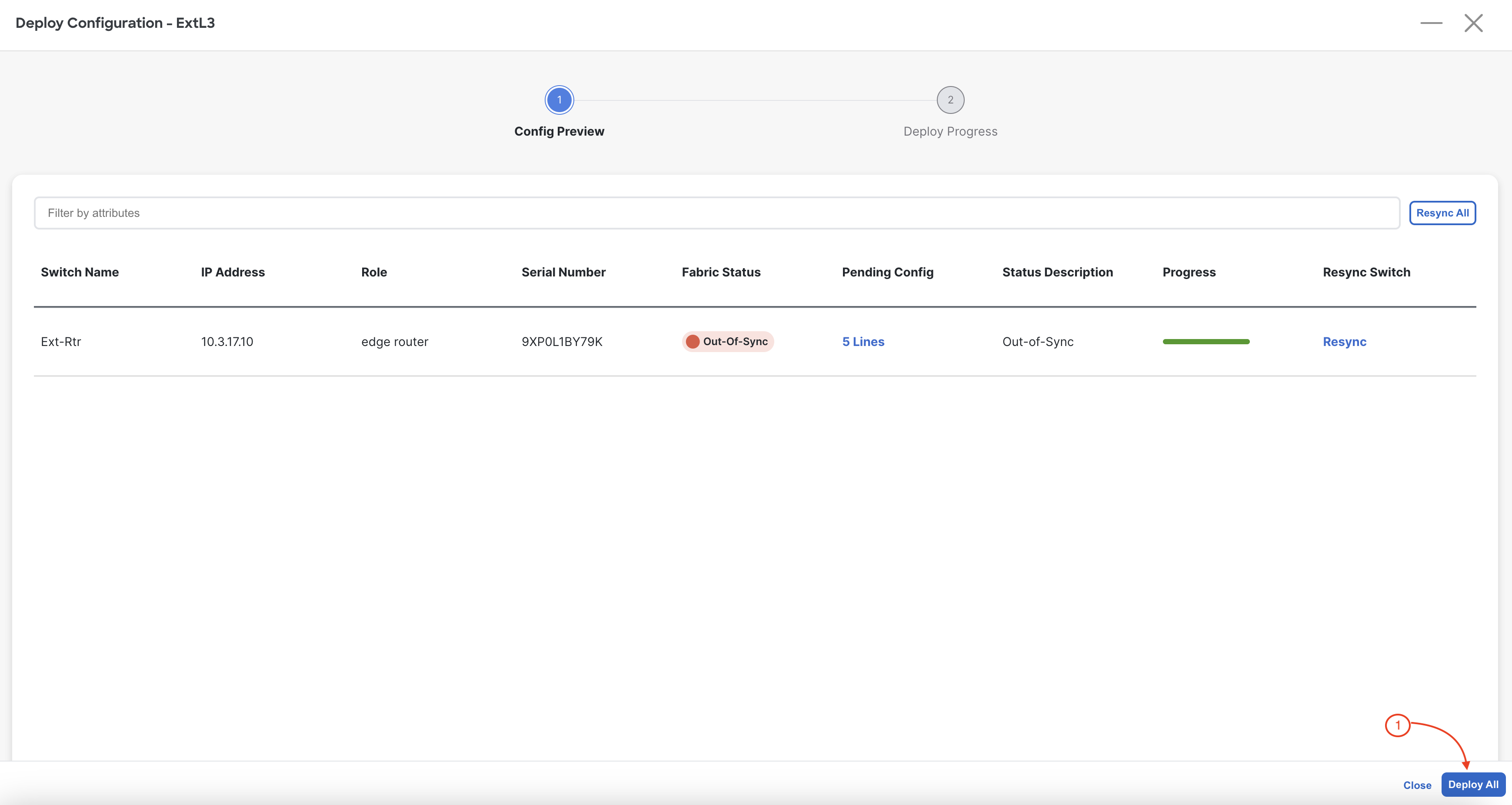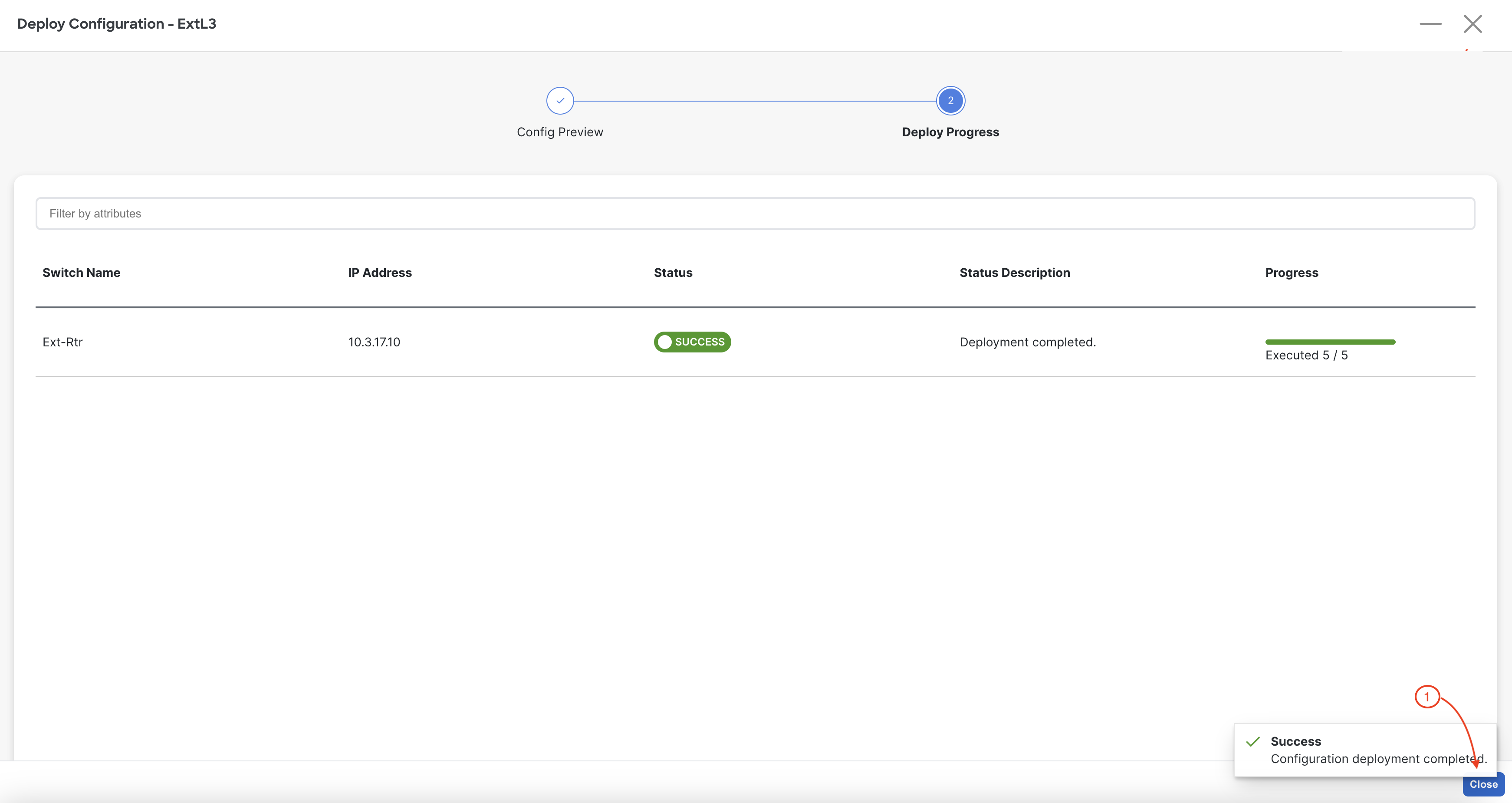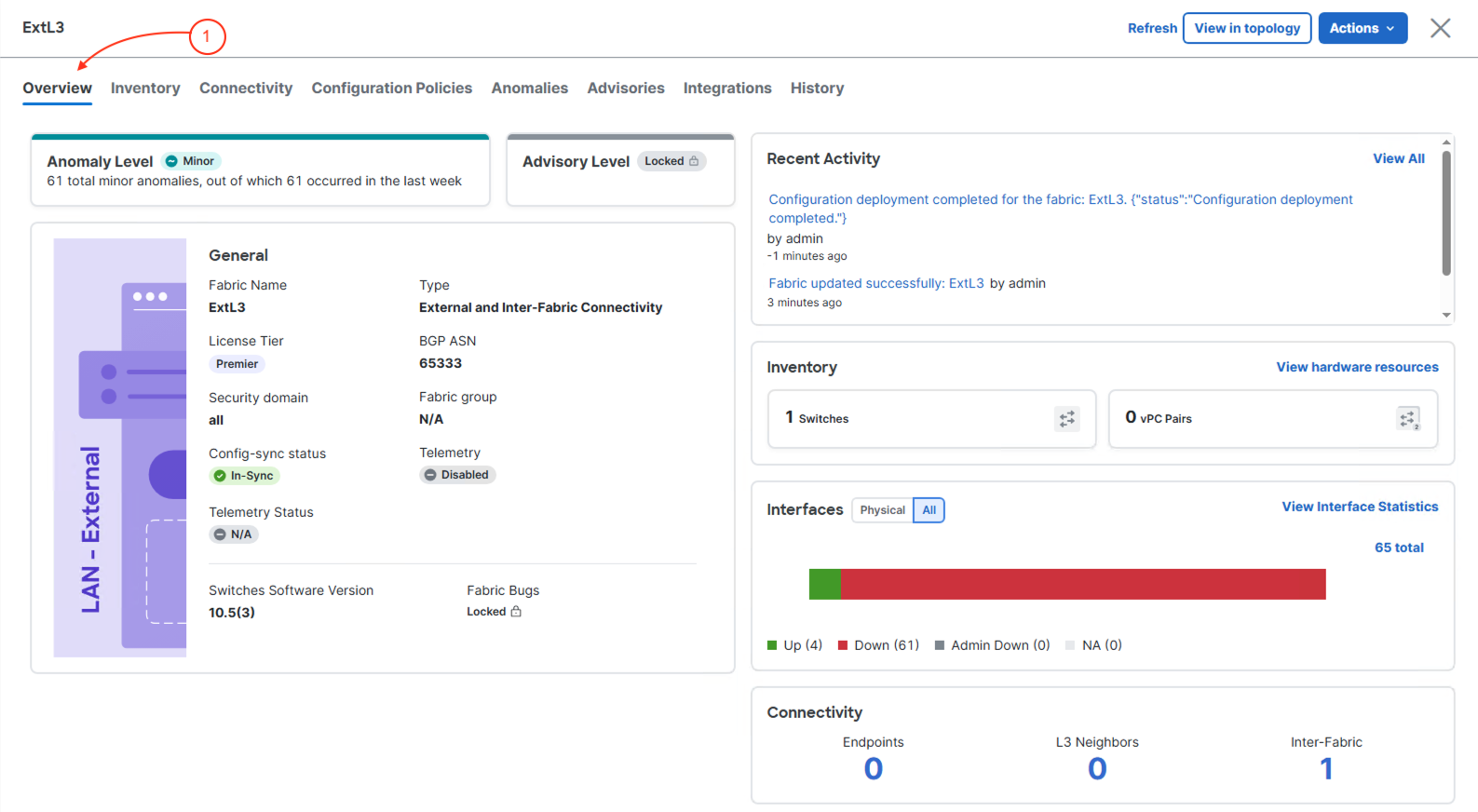
The initial deployment to the external device in your ExtL3 fabric in this section will be a small amount of configuration, specifically the BGP routing process with the ASN you input into the External Fabric's Fabric Settings.
At the top right of the ExtL3 fabric, locate the fabric-level Actions button:

In the Deploy Configuration wizard, you can visually see that not many lines of configuration are required to be configured to your ExtL3 fabric external device.

The stage moves to Deploy Progress where the Out-of-Sync status will change to STARTED while NDFC deploys the device, role specific, configuration. Make note that you can see the progress for the executed number of lines being configured via the progress bar:

Upon a successful deployment, NDFC's Deploy Configuration wizard should look as shown in the screenshot below; all green with SUCCESS messages and each switch's expected configuration progress bar also displaying as green and fully executed. If any error occurred, NDFC will display a notification and the status reverted back to Out-of-Sync.

Back at the main Switches overview, your Ext-Rtr device should display a Config Status of In-Sync.
Revisist the main Overview dashboard and now examine what the dashboard is populated with after initial deployment.

You deployed the initial configuration to your external router with a single Recalculate and Deploy action. Nexus Dashboard generated and pushed the baseline configuration to bring the Ext-Rtr into a managed "In-Sync" state — ready for additional policies and connectivity to be layered on top.
Continue to the next section to deploy the VRF Lite external Layer 3 to your Site1-BL1 border leaf in your Site1 fabric.